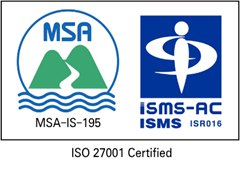Visa and Status of Residence - Basic Requirements
Table of Contents
Basic Requirements for Obtaining Visas and Statuses of Residence in Japan
Certain requirements must be met in order to be issued a visa* that allows entry into Japan and to obtain a status of residence*.
To make the material being presented easier for foreign nationals to understand, the word “visa” is used elsewhere within this website to collectively refer to both visas and statuses of residence. However, since the requirements for visas and statuses of residence differ, they will be explained separately on this page.
*The difference between a “visa” and a “status of residence”:
A “visa” is what is affixed to a passport in advance by a Japanese overseas diplomatic office for the purposes of entering Japan. It is required for the passport-bearer to be allowed to enter the country. The “status of residence” is the status of a foreign national while staying in Japan. It defines the range of activities that the person can engage in while in Japan.
Foreign nationals residing in Japan are granted permission to enter the country at ports of entry based on their visa, and they are permitted to stay based on the status of residence that is granted at that time.
A Japanese visa will be issued to an applicant when he/she meets all of the following requirements and the issuing of the visa is deemed appropriate.
- The applicant possesses a valid passport and is entitled to the re-entry to his/her country of nationality or residence.
- All submitted documents are authentic, complete, and satisfactory.
- Activities to be engaged in Japan/ civil status or position of applicant/ period of stay meet the requirements for status of residence and period of stay stipulated in the Immigration Control and Refugee Recognition Act (hereinafter referred to as the “Immigration Control Act”).
- None of the items of Article 5, Paragraph 1 of the Immigration Control Act apply to the applicant.
Source: Ministry of Foreign Affairs Website
To acquire, change, or update your status of residence in Japan, you must meet various requirements related to engaging in activities in Japan, such as working or studying, your relationship with other parties based in Japan, the closeness of your relationship with Japan, and the like. These requirements vary by status of residence, but some examples are provided below.
- The inviting person (visa sponsor) must be based in Japan
- The applicant and application status must meet the requirements of the corresponding status of residence.
- The applicant must not be engaged in bad behavior.
- The applicant must possess sufficient assets or skills to earn an independent living.
- The applicant’s employment and working conditions must be adequate.
- The applicant must satisfy his/her tax obligations.
- The applicant must satisfy his/her obligations such as submitting notices stipulated in the Immigration Control and Refugee Recognition Act.
Source: Ministry of Justice Website
Regarding (1) above:
When foreign nationals living outside Japan apply for a work or long-term stay visa, an accepting organization is required. For a work visa, this would be the employer or company in Japan. For a student visa, it would be the educational facility. Some special visas, like journalist or artist visas, do not require a visa sponsor.
This accepting organization is known as the “inviting person (visa sponsor),” and it must be secured before applying for a visa. For a working visa, the visa sponsor submits documents and information about their business, finances, and taxes.
When applying for a dependent visa, such as a spouse visa for a Japanese national, the inviting person or family member in Japan must submit documents and information regarding their work, income, and taxes.
In addition to the basic requirements mentioned above, there may be specific requirements depending on the visa type. For detailed information, please visit the Immigration Services Agency of Japan and Ministry of Foreign Affairs of Japan websites.
